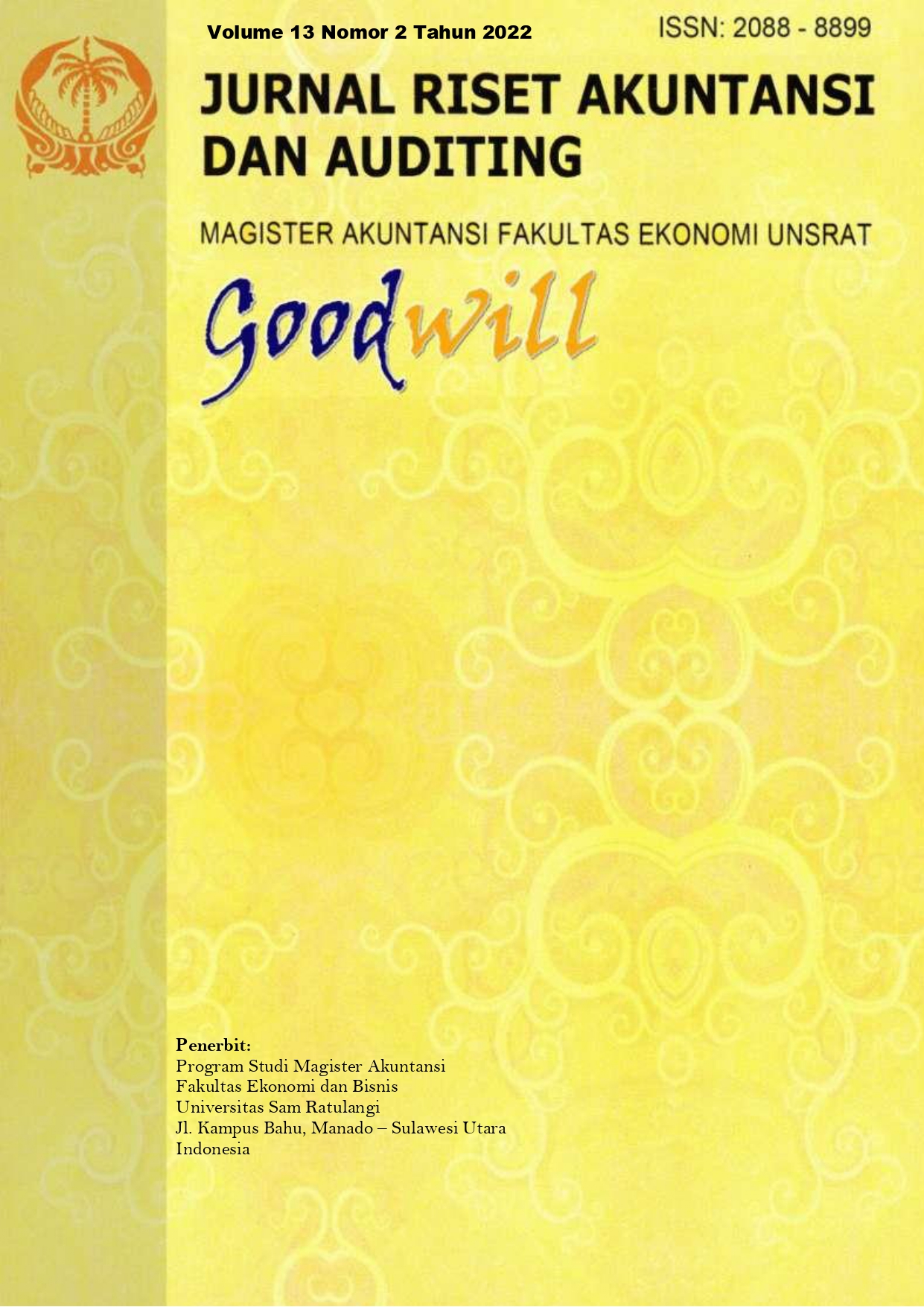PENGARUH WORKING CAPITAL TO TOTAL ASSETS (WCTA), RETAINED EARNING TO TOTAL ASSETS (RETA), EARNINGS BEFORE INTEREST AND TAX TO TOTAL ASSETS (EBITTA), BOOK VALUE OF EQUITY TO BOOK VALUE OF TOTAL DEBT (BVETD) TERHADAP FINANCIAL DISTRESS (STUDI PADA PERUSAHA
DOI:
https://doi.org/10.35800/jjs.v13i2.44827Abstract
Based on BPS data from 2017 to 2019, the construction sector contributed positively to GDP. Until the third quarter of 2020, the construction sector experienced a distraction of minus (-) 4.52%. The contraction in the growth of the construction sector worsened as it entered the final quarter of 2020, which recorded minus (-)5.67%. Although finally in 2021 the Construction sector grew slower in the Second Quarter of 2021 by 4.42% and the second quarter of 2021 by 3.84%. Companies that continue to show declining performance are feared to experience financial distress conditions that lead to the company's bankruptcy. Financial ratios are used in the analysis of financial distress and subsequently become a model of financial prediction. The purpose of this study is to determine the effect of Working Capital to Total Assets (WCTA), Retained Earnings to Total Assets (RETA), Earnings Before Interest and Tax to Total Assets (EBITTA), Book Valueof Equity to Book Value of Total Debt (BVETD) on the Financial Distress of construction companies listed on the Indonesia Stock Exchange in 2017-2021. Result the research shows that the results of multinomial logit regression testing show that the WCTA ratio has a significant effect in predicting financial conditions while the ratio of RETA and EBITTA has no effect in predicting financial distress conditions.

